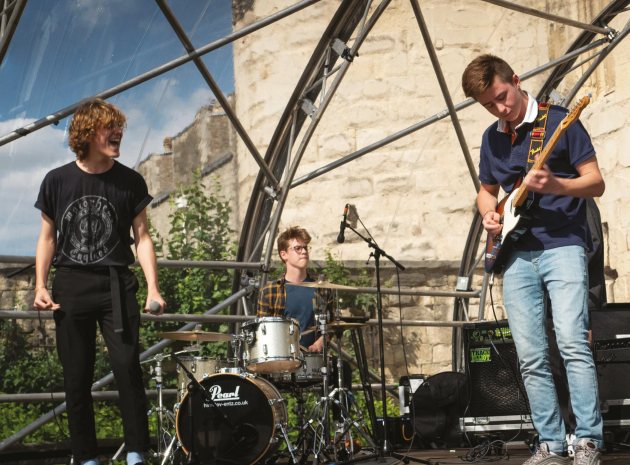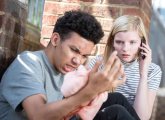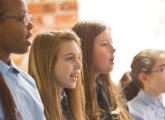Louise Greene: Music and drama are a priority at our school. Regardless of background, views or ambition, music brings students together. Yet where we have found music to be at its most powerful is in preserving the wellbeing of students. It is a fantastic medium for young people to communicate their feelings – whether through song, music composition or writing lyrics.
Katie Kinnair: Interestingly, we rarely notice poor behaviour being an issue in music lessons. It’s a hands-on subject, where students have something practical to do like playing an instrument.
LG: We have been using the disciplines from music and drama for other classes. For example, music is great for helping to improve literacy in English lessons, but it’s also fantastic for bringing other subjects to life such as maths, geography and science. Introducing the arts can make a lesson accessible to students who may find these subjects challenging.
KK: The subject that music has helped students at both schools with, is history. This can be difficult for students to relate to. However, music and drama help students understand how people were thinking, living and feeling at specific periods of time.
LG: We saw how effective music is for igniting enthusiasm for history when we took part in the Young Composers event at Music at the Tower this year. A group of students composed songs on the theme ‘Palace, Prison, Fortress’ to perform at the festival. They thought about the Tower’s history and related the experiences to their own lives. They drew metaphorical links between prisoners locked in the Tower just for their beliefs and their own feelings of being isolated and imprisoned for wanting to be different. Drawing relevance between themselves and the richness of human stories at the Tower, as well as performing at such a prestigious place, generated an interest and a personal connection to the history.
KK: My pupils took part in the choir that performed in front of the White Tower. The choir included over two hundred students from London schools, all singing songs connected to the Tower. Pupils have the opportunity to take part regardless of their previous music ability. It’s accessible for all to get involved and perform music. It develops social skills, as the children are working with students from other schools.
LG: Taking students to perform outside of the school gates has a lasting impact. New friendships are formed. The adrenaline of performing in unfamiliar territory with other schools and musicians encourages the children to support one another and we find a strong sense of unity between students after such an event.
KK: Students aren’t the only ones who form strong bonds. At school we hear a lot about parental engagement. Often, we talk about how technology can break down the barriers between school and home life. This is another way the arts might give schools the edge. Attending events like the Music at the Tower, families see their child’s talent in the spotlight. Parents, schools and students sharing in a precious moment.
LG: One student was struggling with crippling anxiety associated with performance. It was difficult to get her to agree to perform. With the help of her mother, she performed a song she had composed – this led to her receiving a music prize at school and the experience really boosted her confidence. It’s these slightly scary, yet uplifting experiences that help students find their voices.
For more information on the Music at the Tower event visit tinyurl.com/tsmusictower
About the authors
Kati Kinnair is 2nd in charge expressive and performing arts teacher at Mossbourne Victoria Park Academy and Louise Greene is head of music at Ursuline High School.










